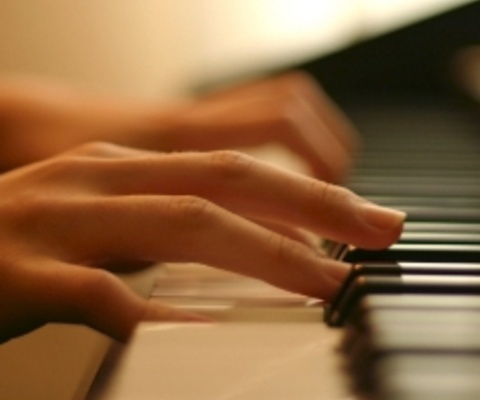
26th March 2015
By Alex Little (U6N)
"Music is, no doubt, an integral part of life at Norwich School. I do not mean to say that this is anything in the way of 'unique', but it is something that it is easy to overlook. The congregational singing of a hymn every morning in assembly is an experience which it is easy to under-value. Those pupils who dislike this practice, or at least see it as a 'chore', are in my opinion missing the point in a big way. I know that it is a tendency of some musicians in recent times to over-estimate the psychological power of music, and I do not want to claim that communal hymn-singing is something that has a great effect on the well-being of the school as a whole, but there is no denying that this most basic form of music-making can have an emotional effect at the deepest level. This is obviously not noticeable from a day-to-day basis, but I am personally not surprised by stories of tears shed as Jerusalem is sung on the final assembly of the year. Likewise, seeing assemblies from the other end of the coin, unseen, in the organ loft, it always makes me smile when a polite ripple of applause is heard following a particularly difficult organ voluntary. This means that the musician has done his job.
Music is the most abstract and the least tangible, of the arts. Unlike the visual or printed media, music seems to have no direct link from musician to listener, even less so from composer to listener. Paradoxically, many listeners find it easier to connect to a symphony of Mozart or a piano sonata of Beethoven - works that, after all, were written so many years ago - than a work written this year or last. The tendency of so-called 'classical' music (a term that in itself can be somewhat misleading) in the last century or so to become disconnected and increasingly 'hard to listen to' does not help in this regard. In many ways this creates a vicious circle in which listeners start to feel less connected to 'classical' music, making composers write music that is even less connected, disconnecting listeners further.
I, as a composer and performer of what could be described as this 'disconnected' music, am always willing to stand up for this. After all, music, although abstract and intangible, is still communicative. If the hearing a complex modern work of Schoenberg or Messiaen causes a reaction in the audience, then surely the music has in some way 'succeeded', even if that reaction is of utter disgust (although I hope it would not be!). This is what continues to surprise me about assemblies: it is easy to see the organ as a mechanistic, dehumanised instrument whose player cannot be seen and therefore remains mysterious, and yet an applause after an organ voluntary means that something has been communicated, in some impalpable way. This sense of 'communication', even when the music is void of its visual element, is one of the principal reasons I enjoy performing so much.
Music is, after all, a sonic art, not a visual one: it is of no surprise that the greatest performers of our age - the pianist Martha Argerich springs to mind - are the ones who move the least. Music is the most communicative art - hymn-singing included - even if there is no visual point of reference; no 'performance'."
Alex recently won the Norfolk Young Musician Competition 2015 and has been awarded an organ scholarship to study at Merton College, Oxford next year.


